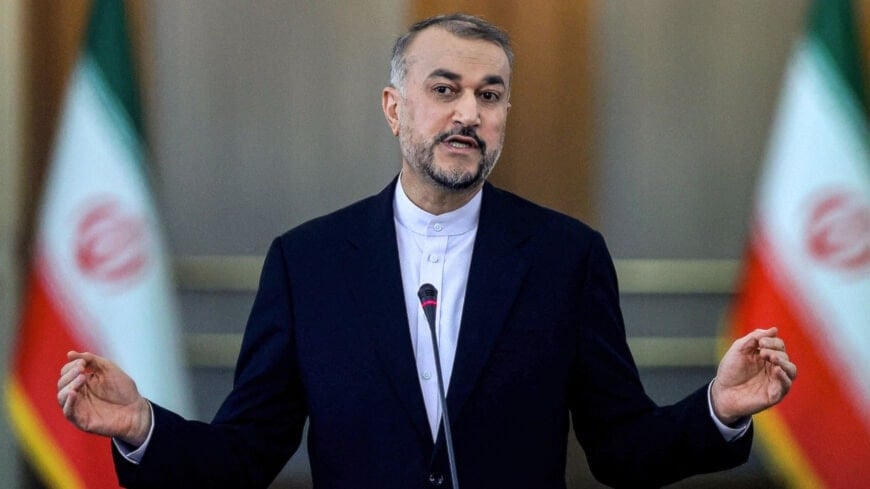Amir-Abdollahian in Moscow: Palestine is on the agenda
Iranian Foreign Minister Hossein Amir-Abdollahian discusses the objectives of his visit to Russia, emphasizing that the Palestinian issue will be on the agenda.
-

Iran's Foreign Minister Hossein Amir-Abdollahian gave a press conference in Tehran on Nov. 23, 2022. (AFP)
Iranian Foreign Minister Hossein Amir-Abdollahian addressed the media upon his arrival in the Russian capital, Moscow, discussing the objectives of his visit and emphasizing that the Palestinian issue will be a focal point in his meetings.
In his press statements, he mentioned that the primary objective is to participate in the meeting of foreign ministers of the countries bordering the Caspian Sea. He further elaborated that the focus of the discussions will be centered around matters aimed at "enhancing economic cooperation between these countries".
He also indicated that he would engage in "bilateral meetings on the sidelines of the conference with my counterparts, particularly Russian Foreign Minister Sergei Lavrov, to follow up on the latest agreements reached between the two countries."
Amir-Abdollahian confirmed that the Palestinian issue will also be on the agenda, stating, "I will discuss with my counterparts, especially the Russian Foreign Minister, ways to achieve a ceasefire, facilitate humanitarian aid to Gaza, and put an end to the actions of the Zionist entity against the residents of Gaza and the West Bank."
During his historic visit to Tehran, Cuban President Miguel Diaz-Canel was welcomed warmly by Iranian President Ebrahim Raisi in a ceremony at the Saadabad Historical and Cultural Complex on Monday.
At the airport, the Cuban president was welcomed by Iran’s Minister of Health and Medical Education Bahram Einollahi at Tehran’s Mehrabad Airport. This marks the first visit by a Cuban president after late leader Fidel Castro, who visited Iran 22 years ago.
Both nations have signed documents and memoranda of understanding to enhance and further bilateral relations and cooperation.
The seven agreements signed entailed cooperation in energy, agriculture, health, medical sciences, technology, and communications, a strategic agreement on vaccine production, and the exchange of medical expertise.

 2 Min Read
2 Min Read








